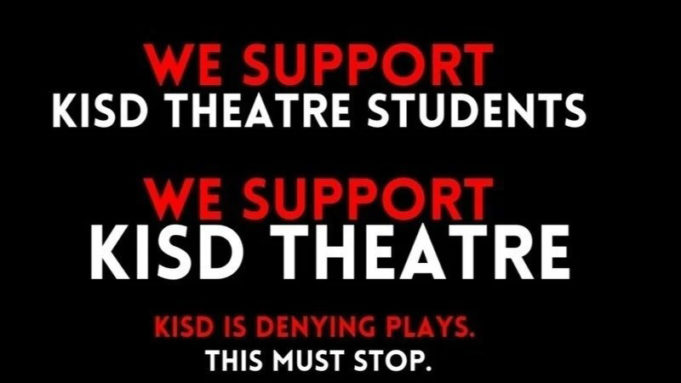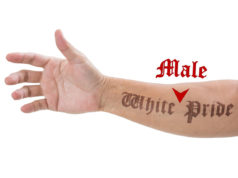At pretty much any other 817 school district, students and parents, and their friends and supporters, might show some grace to trustees greenlighting theatrical productions.
But we’re talking about Keller ISD.
This is the same school district whose leaders earlier this year yanked a production about the notorious 1998 Wyoming murder of a young gay student, Matthew Shepard. After public outcry, The Laramie Project went on at Timber Creek High School as scheduled.
Keller ISD is also same school district whose trustees unanimously passed two anti-LGBTQ+ policies last year. One allows teachers and staffers to misgender students. The other — with the exception of special, parental-requested accommodations — forces a student to use only the restroom or locker room that corresponds to their gender assigned at birth. In a letter, the ACLU of Texas said, “Enacting these policies would harm Keller students, invade their medical privacy, and defy best practices recommended by nonpartisan education associations.” A former student said the policies would “protect bullies and … embolden their hate.”
Now, Keller students, parents, and supporters are adding their signatures to a petition to keep Keller ISD leaders from determining which plays can and can’t be produced by district students and their teachers.
With more than half of its 1,000-signature goal already met, the petition arises from the recent removal of several previously approved plays from Keller ISD theater programs. Artemisia, The Curious Incident of the Dog in the Nighttime, Ruthless!, and The Yellow Boat feature nontraditional characters, including an indefatigable woman painter in Renaissance Italy, an autistic person, an all-female cast, and a boy dying from AIDS-related complications.
“As parents of children actively participating in the fine arts programs of Keller ISD,” the petition reads, “we are alarmed by the sudden increase in censorship of the theater departments across the district. Our kids have been flourishing in their creative pursuits under these programs. However, the recent intervention from the superintendent and the superintendent’s cabinet has drastically affected their development and growth.”
A procedure approved in August permits Keller ISD Superintendent Tracy Johnson or her cabinet to review any play or musical even if already approved by the fine arts administration.
“This extra layer of scrutiny has led to countless denials,” the parents say in the petition, “often with vague or no reasons provided, which is severely affecting our kids’ ability to express themselves and learn.”
Keller ISD, a district spokesperson said, “remains dedicated to fostering a lifelong appreciation for the arts through high-quality, engaging programs, and the district’s process of script approval for our theater programs hasn’t changed. Scripts are reviewed at both the campus and district administrative levels before being approved for student use. These guidelines, which consider age appropriateness and community standards, are longstanding and align with those used for all instructional materials. We are excited to support our talented theater students as they prepare for another year of outstanding performances and look forward to celebrating their achievements with our community.”
School censorship dovetails with a swell of conservative laws limiting the LGBTQ+ community’s presence in the classroom. Along with Keller’s new anti-LGBTQ+ policies, the ACLU is tracking 233 schools and education bills taking aim at queer rights and expression.
K-12 school districts across the country are censoring plays — and banning books — more than ever, and Texas leads the way. Bans in the first few weeks of the 2023-24 year outpaced all of 2022-23, based on data from the literary nonprofit Pen America. Twenty-three states accounted for 4,349 book bans, with four Texas districts responsible for the most: Frisco ISD (368 books), Conroe ISD (79 books), Texarkana ISD (58 books), and Keller ISD banning 85 books.
“Theatre can have a profound effect on its audience,” said Keller ISD senior Nathan Beets in a statement. “We can’t do that if we are censored from portraying real-life stories on stage, stories that people may find uncomfortable to talk about but are best conveyed through art.”
This column reflects the opinions of the editorial board and not the Fort Worth Weekly. To submit a column, please email Editor Anthony Mariani at Anthony@FWWeekly.com. He will gently edit it for clarity and concision.












